Reading skills improvement Phonics Worksheets for Ages 6-7
7 filtered results
-
From - To
Enhance your child's reading abilities with our engaging Phonics Worksheets tailored for ages 6-7! These carefully designed worksheets focus on improving essential reading skills through interactive phonics activities. Kids will explore letter sounds, word blending, and vocabulary building, making learning both fun and effective. With visually appealing designs and age-appropriate challenges, our resources empower young learners to boost their confidence in reading. Perfect for teachers and parents alike, these printable worksheets support phonetic awareness and reading fluency, setting the foundation for lifelong literacy success. Start your child's reading journey today with our comprehensive library of phonics worksheets!
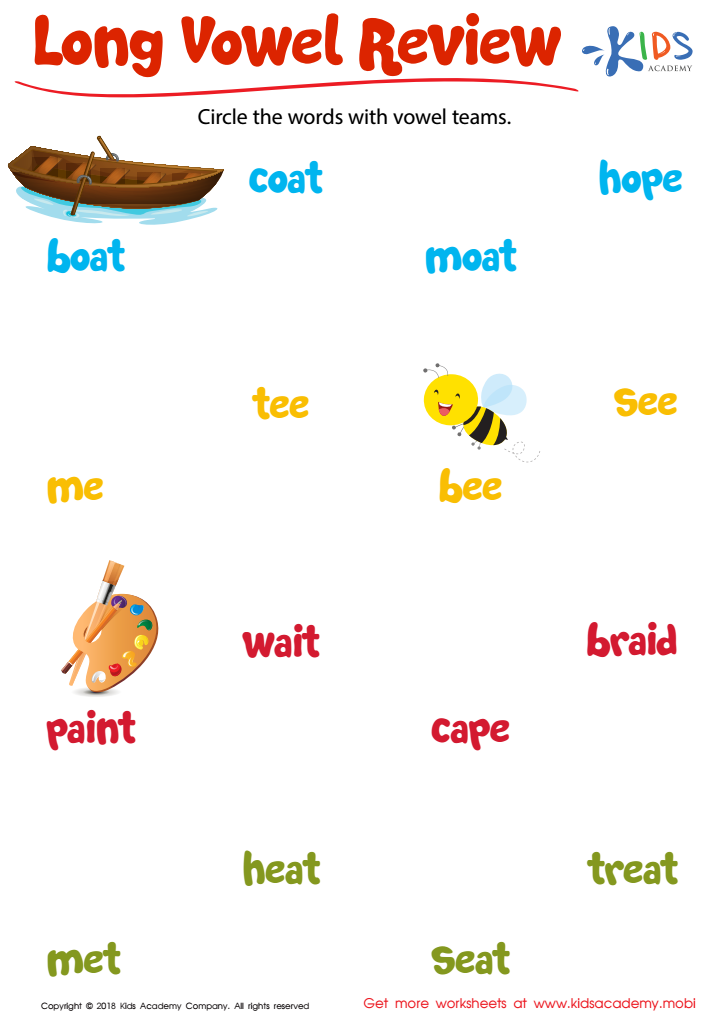

Long Vowel Review Worksheet
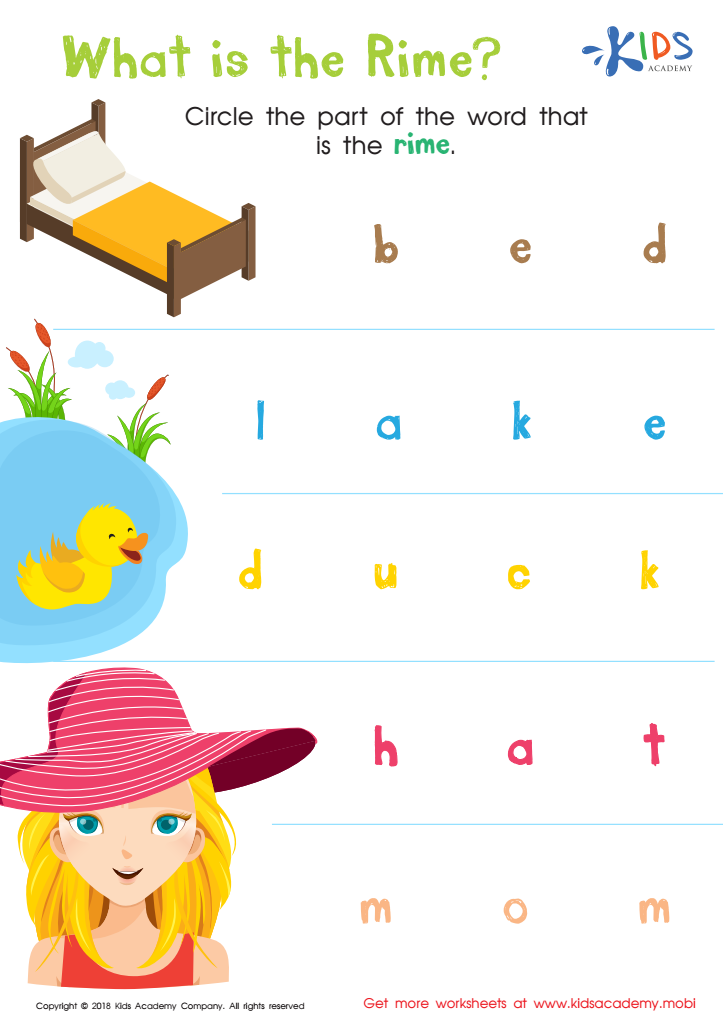

What Is the Rime? Worksheet
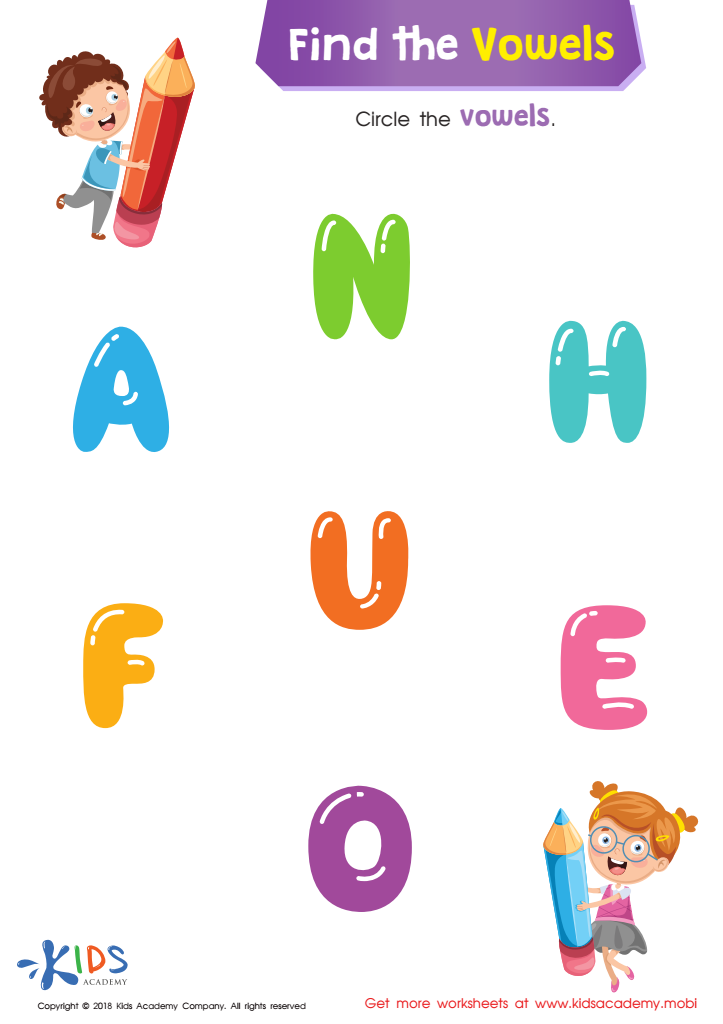

Find the Vowels Reading Worksheet
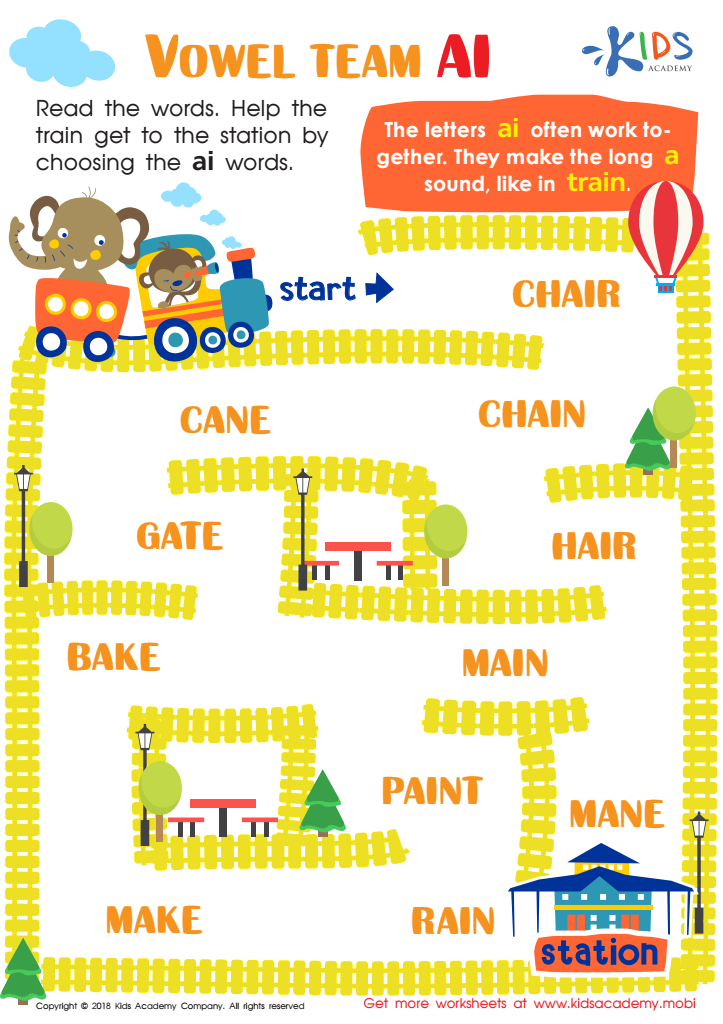

Vowel team ai Worksheet
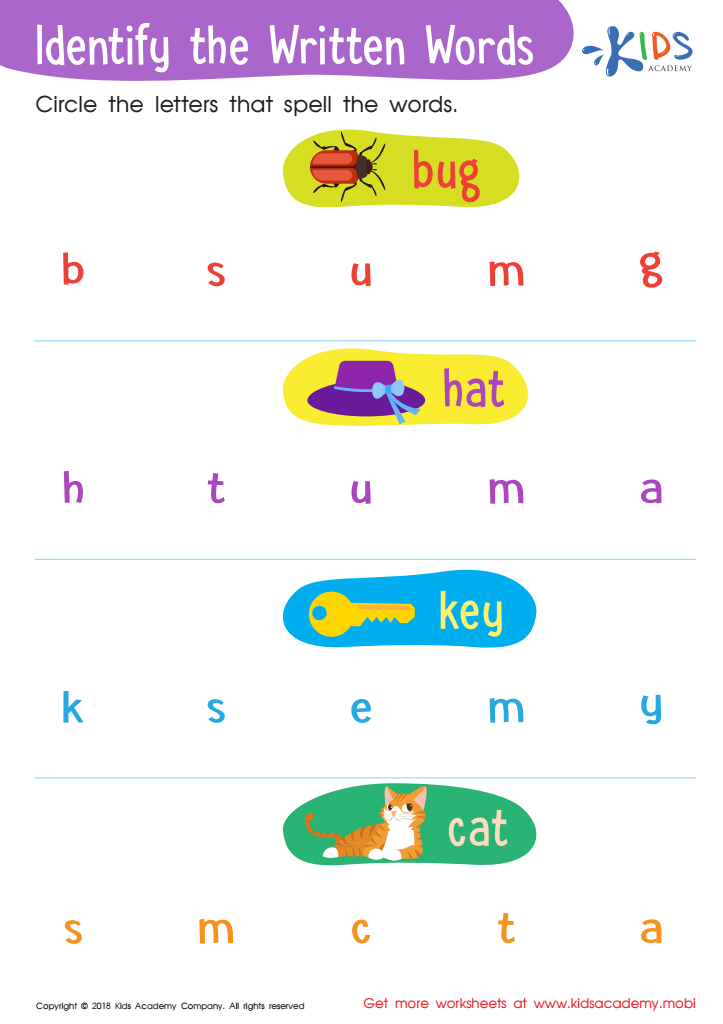

Identify the Written Words Worksheet


Words with sound p Reading Worksheet
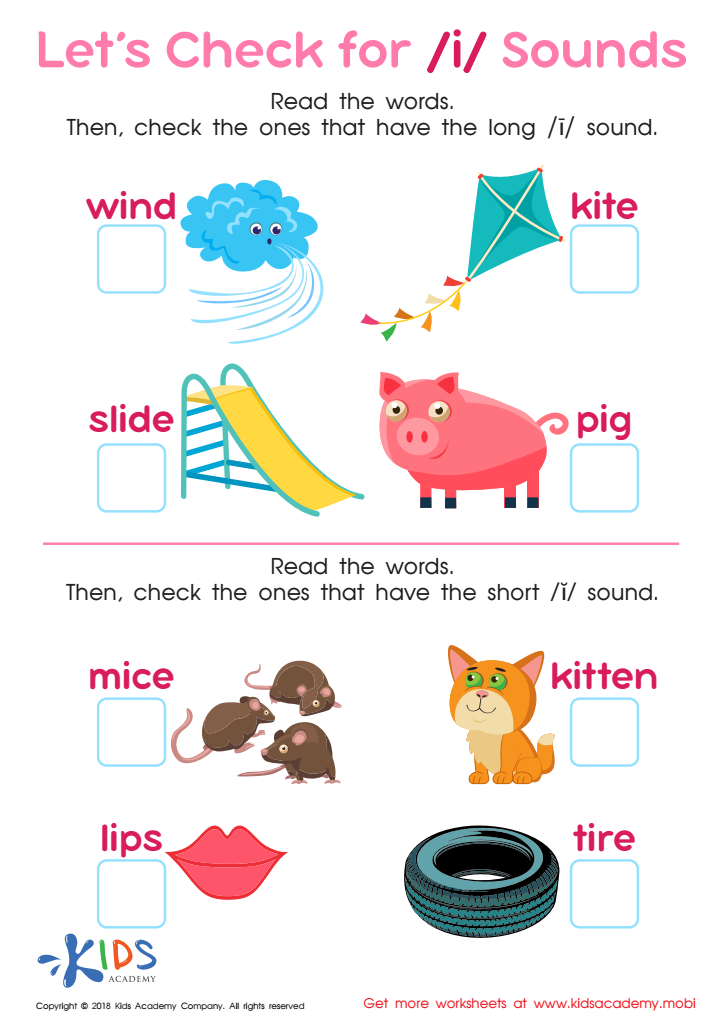

Let's Check for «i» Sounds Worksheet
Parents and teachers should prioritize reading skills improvement, particularly through phonics, for children aged 6-7, as this is a crucial developmental stage. During these formative years, children transition from learning to read to reading to learn, making strong reading foundations essential. Phonics—the method of teaching reading by correlating sounds with letters or groups of letters—helps children understand the relationship between sounds and their spelling patterns.
By mastering phonics, children can decode new words, improving their reading fluency and comprehension. This early literacy skill not only boosts confidence but also lays the groundwork for successful learning in various subjects. Additionally, children who grasp phonics early are more likely to enjoy reading, fostering a lifelong love of books and learning.
Moreover, many educational systems emphasize the importance of phonics, making it a fundamental area in reading curriculums. By supporting phonics instruction, parents and teachers can identify early reading challenges, providing timely interventions that can significantly impact a child's academic journey. Ultimately, investing in phonics education equips children with the tools they need to succeed academically and socially, enabling them to fully engage in their education and develop essential communication skills.
 Assign to My Students
Assign to My Students




















